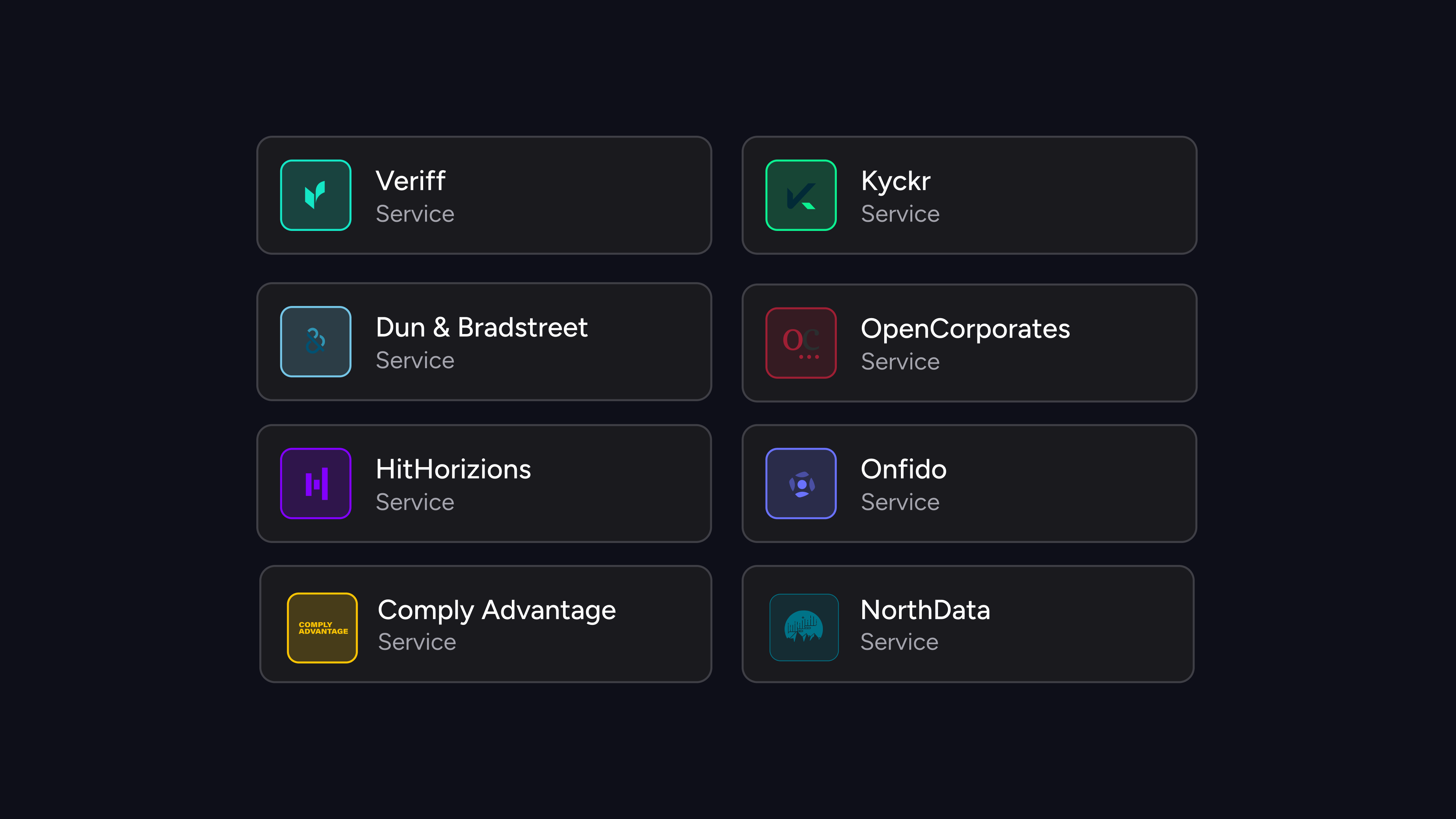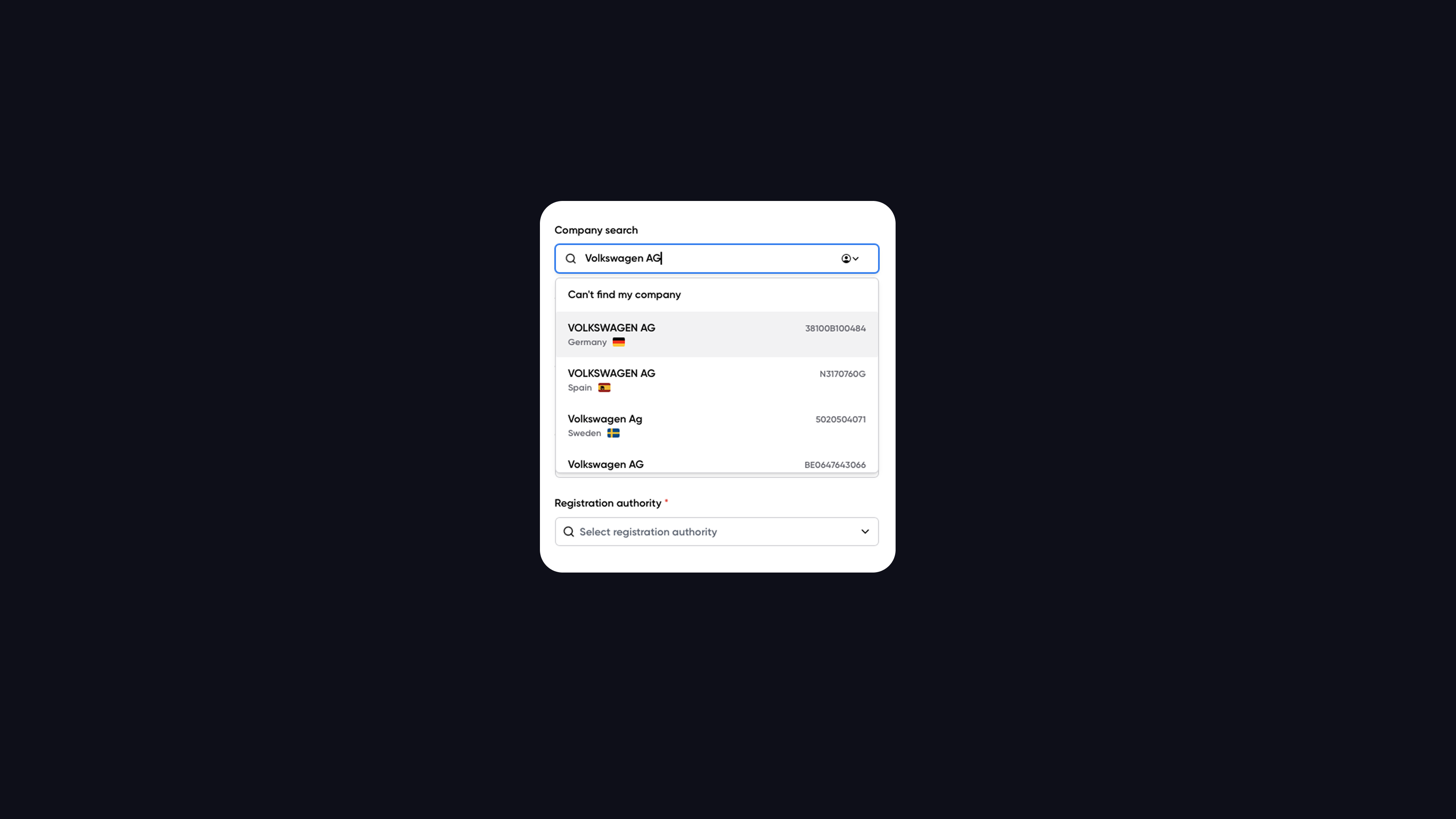Germany’s Unique KYB Problem and How to Solve It
Try the platform

Share the article
Germany is home to some of the world’s most respected banks and a vibrant fintech scene. So you’d assume that Know Your Business (KYB) in Germany would be straightforward: check the company register, confirm the owners, and you’re done.
In reality, KYB in Germany is a special case. Company identifiers aren’t always unique. Data is fragmented across national and state-level registers. Reporting requirements are more outdated and complex than in countries like Sweden or Norway. For payments companies trying to scale in Germany, that creates a tricky situation: it already looks complicated on the surface — and in practice, it’s even more challenging.
That’s where the right orchestration and smart use of technology makes the difference.

The Uniqueness Problem: When One Number Isn’t Enough
In most markets, a company number is a unique key — one business, one identifier. But in Germany, things aren’t that tidy. Depending on the authority where a company is registered, the same number can appear in more than one record. That means a number alone can’t be trusted to pinpoint the right entity.
For a payments company, this creates real risk. Imagine onboarding what you believe is a legitimate merchant, only to discover that the company number also belongs to another entity in a different registry. Without additional context, verification is incomplete at best, misleading at worst.
This is by no means a flaw in the German system, it’s just a structural quirk. But it means that any KYB setup relying only on registry IDs will quickly run into blind spots.
Fragmented Registries, Fragmented Truth
The second challenge is Germany’s patchwork of registries. There’s no single, unified source of company truth. Instead, information lives across multiple places: federal registries, state-level registers, the Bundesanzeiger (for filings), and the transparency register for beneficial ownership.
Each registry serves its own purpose. Each covers certain company types. Each has its own data structures. For KYB, this means no one-stop shop; you need to piece together information from multiple angles to get a complete picture.
Add to this the sheer variety of German legal forms — GmbH, UG, AG, e.K., and more — and the complexity multiplies. For compliance teams, manual checks across sources slow onboarding and frustrate customers. For fraud teams, gaps between registries open the door to risk.
Outdated Reporting Standards vs the Nordics
Germany also differs in another way: companies aren’t required to disclose as much information as, for example, their Nordic counterparts. Take Sweden as an example; financial data and beneficial ownership details are extensive and standardized. In Germany, disclosure is more limited and sometimes inconsistent.
This makes it harder to verify ownership structures or financial reliability based solely on what’s filed. It’s not uncommon to find missing links or gaps in data that leave open questions about who really controls an entity.
For payments companies, this creates a balancing act. Too much reliance on raw registry data means missing red flags. Too many manual requests for documents frustrates customers.
How to Solve It: Orchestration + Intelligence
The good news is that Germany’s KYB “special case” is solvable. The key is not to treat any single registry as the source of truth, but to orchestrate multiple data sources together.

At spektr, we’ve built specific logic for Germany that does exactly this:
- Waterfall orchestration: local registries are queried first, then enriched with third-party providers, so you never rely on one incomplete dataset.
- German-specific logic: our system knows how to resolve duplicate company numbers and map the quirks of different legal forms.
- AI-driven context: when information is missing or inconsistent, our AI fills the gaps by interpreting corporate structures, service providers, and registry overlaps.

The result is a unified view of a business, even in Germany’s fragmented landscape.

What This Unlocks for Payments Companies
For payments companies, getting KYB right in Germany isn’t just about ticking BaFin’s compliance box. It’s about being able to onboard merchants faster without cutting corners on risk.
- Speed: automation means less manual registry hunting.
- Accuracy: duplicate numbers and fragmented records don’t derail the process.
- Confidence: beneficial ownership and AML checks can be trusted even when registries fall short.
Closing Thoughts
Germany doesn’t have a broken KYB system. It has a unique one. Company identifiers aren’t always unique. Registries are scattered. Reporting is more outdated than in some other European countries. But with the right orchestration and intelligence, payments companies can solve these challenges and even turn them into strengths.
That’s what we’ve designed spektr to do: build a German KYB playbook that works in practice, not just on paper. Curious to see how? Start your trial and test it for yourself.




